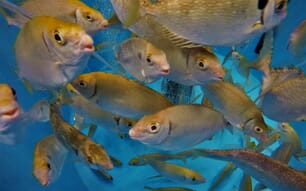While its unlikely the shrimp has colonised Yorkshires waters, the team at the Environment Agency will be setting special traps at selected lakes.
Environment Agency team leader Paul Curry said: These surveys form part of a national monitoring programme to assess the spread of the killer shrimp. Whilst we are optimistic the shrimp hasnt come this far north, we have targeted the surveys at the waters we think most likely to contain them if they have."
Well be setting the traps over the next couple of months as we do other work in each of the target areas.
The shrimp was first spotted in the UK last year in Cambridgeshire and sparked a nationwide alert. They are thought to be transported on anglers nets, by boats or by fish stocking.
Mr Curry continues, Wed encourage all anglers, wherever they are fishing, to check, clean and dry their tackle, as that will help stop the spread of invasive species and disease.
The shrimp is a voracious predator (hence its common name of killer shrimp). It kills a range of native species, such as freshwater invertebrates, particularly native shrimps and even young fish. This alters the ecology of the habitats it invades.
It often kills its prey and leaves it uneaten. It tends to dominate the habitat, sometimes causing the extinction of native species.
Insects such as damselflies and water boatmen, common sights on British lakes and rivers, could be at risk, with knock-on effects on the species which feed on them.
It has spread across most of Western Europe over the last 10 years. It can be as small as three millimetres but may grow up to 30mm long, much larger than our native freshwater shrimp.
To report a suspected sighting of killer shrimp email alert_nonnative@ceh.ac.uk
Yorkshires Waters Surveyed For Killer Shrimp
UK - Yorkshire Environment Agency officers are on the hunt for the so-called killer shrimp, which poses a threat to native pond and river wildlife, to check whether it has invaded Yorkshire waters.



